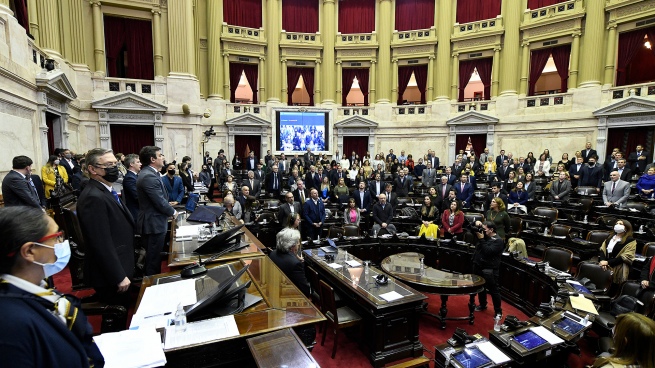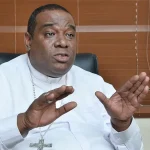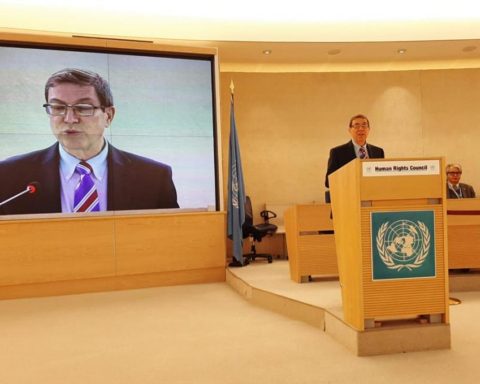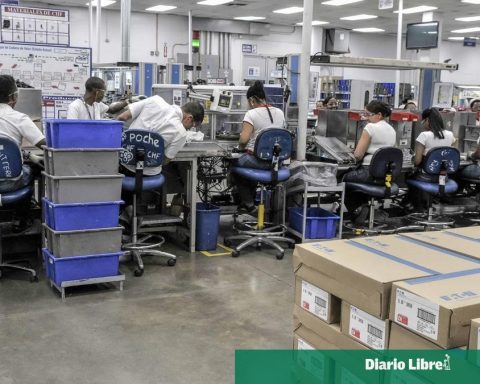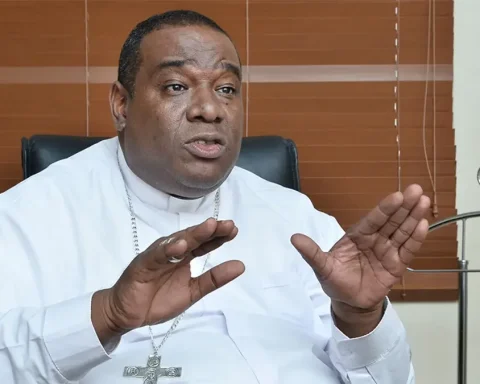The Chamber of Deputies approved this Wednesday night and sent to the Senate the bill that extends for 50 years the specific allocations destined to support activities such as those carried out in popular libraries, cinema, music and theaterand whose current term expires on December 31, according to what was resolved during the previous government of Cambiemos.
The initiative added -132 votes in favor, from the Frente de Todos, the Federal interbloc, the United Provinces and the Left; 5 against, from libertarian legislators; and 92 abstentions, from the majority of the members of Together for Change.
With 132 affirmative votes, 5 negative and 92 abstentions, the extension of the specific allocations provided for industries and cultural institutions established in Law 27,432 is approved.#JoiningVoices?? pic.twitter.com/ss8WKl0B8C
– Deputies Argentina (@DiputadosAR) June 16, 2022
After more than four hours of debate, the text promoted by the ruling party was finally imposeddespite the attempt of some sectors, such as radicalism, to agree to lower the extension period in order to accompany it with the vote in favor.
The informant member of the project and president of the Communications Commission, Pablo Carro (Frente de Todos), pointed out: “What we are discussing here today is how we go about financing and promoting our culture and the set of institutions that form the framework of our culture”.
“The fact that we are a poor country does not imply that we do not have to invest in culture; I see the term as a very fine technical discussion and with respect to the issue of bureaucracy, the argument is absurd, because every peso that is put multiplies,” he continued.
Finally, regarding the previous questioning of some opposition blocs, he concluded: “With the money from culture we are not going to pay the International Monetary Fund; just like with the money from the workers, no; with the money from culture, no. “, he expressed.
? • With 132 votes in favor, it was approved in @DiputadosAR the half sanction to the Law of extension of Specific Allocations for Industries and Cultural Institutions. pic.twitter.com/uycnkccB5o
— Deputies of TOD☀S (@Diputados_Todos) June 16, 2022
For Together for Change, the first speaker was Hernán Lombardi, from the PRO, who questioned that “the fact that the project has not been turned over to the Culture Commission (which he chairs), speaks of the economistic concept that (the ruling party) It gives to the initiative. They are nooks and crannies of the parliamentary mechanics that we have to improve, in a severe procedural error”.
In justifying the PRO’s position, he said that he is “in favor of culture, but against bureaucracies” and questioned the 50-year term by highlighting that “even several senators from the Front of All have projects stipulating that the tax be until 2030, and they are not considered neoliberal.”
“There is no doubt that we are defenders of culture, but there is no place to continue banking privileges, not for artists, but for those organizations with overlapping functions,” he asserted.
The response to the former Cambiemos government official came from the ruling party Gisela Marziotta who noted that “those words come from someone who joined the government, who eliminated the Ministry of Culture and made it a secretary; that is why we say facts, not words.”
“It is with facts that culture is defended; this project comes to solve problems that you left when it was your turn to govern Argentina, make the problem visible and give it a solution, which is what we are doing, in something that has to do with the two models of country that we consider, with the presence or not of the State in the search for equity”, he added.

For socialism, Enrique Estevez expressed: “We feel joy for the incentive to cultural industries and sadness for the climate in which it is being debated -in reference to the boos from the boxes to some deputies-. This issue is very expensive for the socialists , because of something closely linked to us, which are popular libraries, and I’m not talking about those in big cities, but about small towns and villages, because that’s what we have to support”.
In the same sense, another member of the Federal interbloc, Ignacio García Aresca, from Córdoba, from the ruling party in his province, expressed himself: “We are going to accompany because Córdoba has projects to demonstrate the work that has been done for a long time, for example in the province with the audiovisual production project with national artists and the importance for the interior of the interior”.
From the United Provinces interblock, Luis Di Giacomo, from Rio Negro, pointed out “Not only do we support this project, but we also present an alternative one that we add to the final text.”
“Culture is a very particular issue, because we are talking about identity, about the questioning freedom that culture has. This is not coincidentally because conservative sectors do not like it,” he remarked, adding that “in any case, it acts on taxes to the game, and if so, welcome.
“In 2017 they told us -the deputies- that we were going to have to say if we discontinued this fund, and the answer is no, we are not going against this fund,” he stated.

Gabriela Lena, from the UCR, explained: “We are facing a vital decision: if we choose a State that continues to distance itself from responsibility in educational and cultural matters, or if we bet on education and culture as an instrument of inclusion and overcoming”.
On the Left, Myriam Bregman, recalled: “In 2017 we voted against that decision by Macri, as we voted against all his initiatives” and this one that we are voting on is an initiative that was in danger “because since the liberals are in this room everything that is talked about here is measured in terms of fiscal cost.”We demand money for culture and not for the IMF,” he concluded.
For Radical Evolution, Danya Tavela, opined that “Culture is not the property of a political party, nor of a union; it is not the property of many minorities no matter how loud and organized they may be; culture is the property of Argentines.”
The session was followed from the boxes by artists, musicians and intellectuals, who in some passages of the session booed deputies who expressed themselves against the project; what caused a call of attention on the part of the authorities of the Camera.
The Minister of Culture, Tristán Bauer, who celebrated the sanction of the project, was also on the premises.
In journalistic statements, Bauer affirmed this Wednesday that the law on allocations for cultural activities “is fundamental” for the development of that sector in the country and considered that it was a “calamity” that the Mauricio Macri government had imposed a limit on it. for December of this year to a law, whose extension was discussed today by the Chamber of Deputies.
“This is essential for the audiovisual industries, music, theater and for the support of popular libraries”Bauer said in statements to Radio Nacional upon arrival at the Chamber of Deputies where he attended the debate on the initiative.
According to the minister, the extension of this law “is essential for the development of cultural industries.”
The organizations reached are the National Institute of Music, the National Commission of Popular Libraries (Conabip), the National Theater Institute (INT), the National Institute of Cinema and Audiovisual Arts (Incaa), the National Communications Entity (Enacom) , Radio and Television Argentina (RTA), the Multisectorial for Work, Fiction and the National Audiovisual Industry and the Academy of Cinematographic Arts and Sciences of Argentina.
